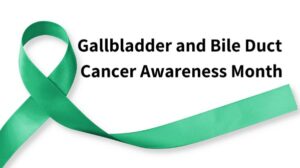Cancer remains one of the leading causes of mortality worldwide, yet not all cancers receive equal attention or have the same survival outcomes. Among these are the lesser-known and more deadly cancers collectively referred to as Less Survivable Cancers (LSCs). These include pancreatic, liver, lung, oesophageal, stomach, and brain cancers. Together, they account for a significant proportion of cancer-related deaths but often lack the public awareness necessary to improve outcomes.
What Are Less Survivable Cancers?
Less Survivable Cancers are characterised by their low survival rates. While advancements in treatment and early diagnosis have improved outcomes for many types of cancer, LSCs remain a significant challenge due to:
Late Diagnosis: Symptoms of these cancers often go unnoticed or are misattributed to other conditions until the disease has reached an advanced stage.
Complexity of Treatment: LSCs often involve complex organ systems, making treatment more challenging.
Limited Funding: Research funding and public attention for LSCs lag far behind other, more survivable cancers.
For instance, the five-year survival rates for pancreatic and liver cancers are alarmingly low, often under 20%, compared to over 90% for breast and prostate cancers when detected early.
Why Awareness Matters
Awareness is a critical step toward improving survival rates for LSCs. Many people remain unaware of the symptoms or risk factors associated with these cancers, which contributes to delayed diagnosis and poorer outcomes. Increased awareness can:
Encourage Early Detection: Educating the public about symptoms can lead to earlier diagnosis, which is often the key to successful treatment.
Drive Funding for Research: Awareness campaigns can galvanize support for increased funding, enabling breakthroughs in treatment and diagnosis.
Reduce Stigma: Talking openly about these cancers helps reduce the stigma associated with them, encouraging people to seek medical advice sooner.
Less Survivable Cancers Awareness Day (LSCAD)
Less Survivable Cancers Awareness Day, observed annually on January 11th, shines a spotlight on these underrepresented cancers. The day serves as an opportunity to educate the public, advocate for increased funding, and honour those affected by LSCs.
Key Objectives of LSCAD:
Raise Awareness: Informing the public about the symptoms, risk factors, and challenges of LSCs.
Promote Early Diagnosis: Highlighting the importance of recognising early warning signs.
Advocate for Funding: Encouraging investment in research for better treatment and detection methods.
By participating in LSCAD activities, individuals and organisations can make a meaningful impact in reducing the burden of these devastating diseases.

Recognizing the Symptoms
Early detection can be life-saving, but it starts with knowing the warning signs. Symptoms of Less Survivable Cancers include:
Pancreatic Cancer: Jaundice, unexplained weight loss, persistent abdominal pain.
Liver Cancer: Fatigue, swelling in the abdomen, yellowing of the skin and eyes.
Lung Cancer: Persistent cough, chest pain, shortness of breath.
Oesophageal Cancer: Difficulty swallowing, heartburn, unexplained weight loss.
Stomach Cancer: Indigestion, bloating, nausea.
Brain Cancer: Persistent headaches, seizures, changes in vision or personality.
While these symptoms can also be indicative of less serious conditions, any persistent or unusual symptoms should prompt a visit to a healthcare professional.
How You Can Help
- Raising awareness about Less Survivable Cancers is a collective effort. Here’s how you can contribute:
- Spread the Word: Use social media platforms to share information about LSCAD and the importance of early detection.
- Support Research: Donate to organizations focused on LSCs to fund innovative research and treatments.
- Participate in Events: Join community activities or awareness campaigns organized on January 11th.
- Educate Yourself and Others: Learn about the symptoms and risk factors, and share this knowledge with friends and family.
Hope Through Research and Innovation
Despite the challenges, there is hope. Advances in medical research, including precision medicine and early diagnostic tools, are paving the way for better outcomes. Liquid biopsies, for example, are emerging as a promising tool for detecting cancers at earlier stages. Public awareness and advocacy play a crucial role in accelerating these innovations.
Frequently Asked Questions (FAQs)
1. What are Less Survivable Cancers (LSCs)?
LSCs refer to cancers with low survival rates, such as pancreatic, liver, lung, oesophageal, stomach, and brain cancers. They often have a poor prognosis due to late diagnosis and complex treatment challenges.
2. Why is January 11th significant?
January 11th is observed as Less Survivable Cancers Awareness Day (LSCAD) to raise awareness, promote early detection, and advocate for increased funding and research for these cancers.
3. How can I contribute to LSC awareness?
You can spread awareness through social media, participate in LSCAD events, donate to research organizations, and educate others about the symptoms and risks of LSCs.
By working together to increase awareness and support, we can improve outcomes for those affected by Less Survivable Cancers.



